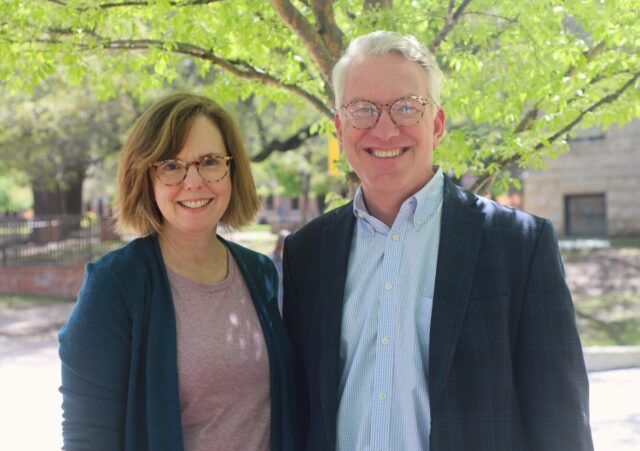By Jacob Boone | Staff Writer
Two Baylor professors co-teach a class in civil discourse, and where their teaching styles differ, they come together in a shared love of mentoring freshmen and building relationships as they go through their four years. One of those freshmen is Anna Corey — their daughter.
Drs. David and Elizabeth Corey met as undergraduates at Oberlin College, a liberal arts school in Ohio, where they both played music and studied classics. At Baylor, David Corey is the director of Baylor in Washington, while Elizabeth Corey serves as the head of the Honors Program. Both have a Ph.D. in political science and lead Baylor’s Great Texts curriculum.
“In a lot of ways, we are similar,” Elizabeth Corey said. “We are question-askers, not lecturers. We want the students to be involved and care that they are invested in the conversation.”
Their daughter, Anna Corey, is a local Wacoan, a University Scholar and a BIC student with interests in political science and criminal justice.
“I never wanted to go to Baylor because I grew up here, but I really love it now, and it is nice,” Anna Corey said. “It’s fun to see familiar faces and have that kind of community. I feel like I have a big support system here.”
This semester, David and Elizabeth Corey are co-teaching The Hardest Issues of Our Age: A Course in Civil Discourse — a course their daughter is enrolled in.
“I was surprised when she took my freshman seminar; I was even more surprised that she loved it,” David Corey said. “She did not come here wanting to do political philosophy.”
Having their daughter as a student in their class has added a new dimension to their teaching. Her presence has inspired David Corey to reevaluate his syllabus and ensure that every assignment is worthwhile.
“Knowing that she was in there awakened me to [how] every word that I assigned takes time away from a student, and it better be 100% worth it,” David Corey said.
Outside of the classroom, the Coreys are mindful of their daughter’s independence and avoid interfering with her “college experience.”
“It’s on her terms,” Elizabeth Corey said. “We don’t try to infringe on her life in any way. We don’t want to be helicopter parents and swoop in to spend time with her.”
For Anna Corey, having her parents as her professors has been a rewarding experience.
“I run into them every day,” Anna Corey said. “I study something that’s in their field, so it’s natural I see them often, but if you have them there, it’s fun to take advantage of things like family lunches at Penland.”
Anna Corey said she enjoys seeing her friends interact with her parents in their shared class.
“You see them in a whole different light, especially seeing how they take care of other students,” Anna Corey said. “Getting to hear how they think through things in class, you start to see them more on your level.”
After seeing her parents teach, Anna Corey said she “can see all [her] other professors caring about their students in the same way.”
David Corey echoed a similar sentiment.
“It’s made me simultaneously more sympathetic in grading and when crises come up,” David Corey said. “Well, what if [those] were your children?”


